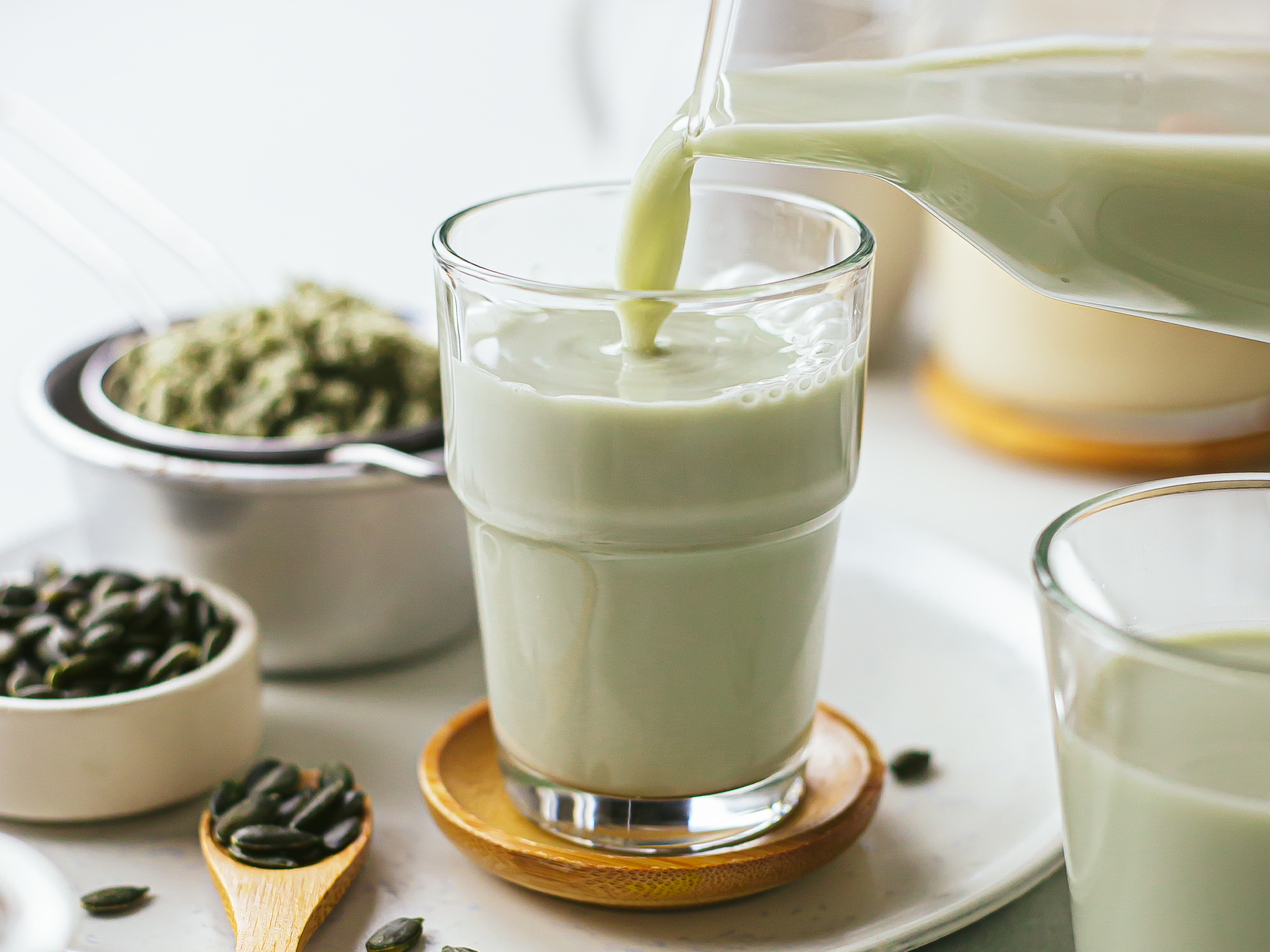Preparing your homemade plant-based milk means you can choose your ingredients, avoid unnecessary additives, and enjoy a healthy, delicious alternative to dairy milk.
And if, after oat and almond milk, you'd like to discover a new vegan milk flavour, this pumpkin seed milk is the perfect recipe to try next.
Made with raw pumpkin seeds and water, pumpkin seed milk is lactose-free, gluten-free, nut-free and soy-free.
Pumpkin seed milk has a subtle green hue that comes from the soaked and blended seeds' skin and a very pleasant, delicate, nutty flavour.
You can use pumpkin seeds to make milk the same way you would with almonds or hemp seeds.
The process is very simple, and with our speedy recipe, it takes just a little over 30 minutes!
You'll need a good blender and something to strain your milk with, like a fine-mesh sieve, a thin dishcloth, or even better, a nut milk bag, aka cheesecloth.
In the steps and FAQs below, we'll give you lots of tips to make the perfect pumpkin seed milk from scratch — plus recipe ideas to use up the leftover pumpkin seed pulp!
The recipe yields one 1 L bottle, but you can scale up the ingredients for a bigger batch to keep at hand for breakfast cereals, bircher muesli, green tea lattes, smoothies, and even bakes.
Is pumpkin seed milk good for you?
Homemade pumpkin seed milk is a healthy plant-based drink rich in proteins, healthy fats, and iron.
A 250 ml (1 cup) serving of unfiltered pumpkin seed milk has about 150 kcal, which goes down to as little as 50 kcal if strained.
It has no added oils, emulsifiers, or thickeners, making it a good alternative for those who want to avoid these ingredients.
The only downside to homemade vegan milk is that it is not fortified with vitamins and minerals as the commercial ones.
So, consider getting your vitamin D, vitamin B12, and calcium from supplements or other foods, like cereals, oranges, soy, sesame seeds, kale, and nutritional yeast.
Do I have to soak pumpkin seeds for milk?
Yes, it’s essential you let the pumpkin seeds soak in water before blending them into milk.
Soaking allows the pumpkin seeds to absorb water and soften so they’ll break down better into smoother milk, release more flavour, and taste less bitter.
Also, soaked seeds are easier to digest and more nutritious — soaking triggers the sprouting process (which bumps up nutrients) and helps wash away antinutrients.
How long does it take to soak pumpkin seeds before blending?
The fastest way to soak pumpkin seeds is to let them soften in a bowl of boiling water for at least 20-30 minutes, ideally 1 hour.
If you have more time or are planning things ahead, you can opt for a cold soak overnight.
To do it, leave the pumpkin seeds to soak in cold water for 8 hours in the fridge in an airtight glass container or a bowl wrapped with film.
Can you drink pumpkin seed milk without straining?
Unfiltered pumpkin seed milk is higher in fibre and more nutritious, but it has a sandy, grainy mouthfeel, even if you use a powerful blender.
On the other hand, strained pumpkin seed milk is silkier and more pleasant to drink but lower in nutrients and calories as it loses about two-thirds of seed pulp.
So, whether you should strain pumpkin seed milk or not depends on what you'd like: a more nutritious milk or a smoother, tastier milk.
How do you make pumpkin seed milk tastier?
This pumpkin seed milk has a subtle nutty flavour, which is delicious.
To make it even more flavourful, we recommend adding a sweetener like:
Dates
Sultanas
Dried figs
Prunes
Maple syrup
Erythritol (sugar-free)
To make flavoured pumpkin seed milk, try tip in one of the following:
Ground cinnamon or cardamom
Pumpkin spice mix or chai spice mix
Matcha powder
Spirulina
Cocoa powder or raw cacao
Frozen berries
What can I do with leftover pumpkin seed pulp after milk?
After straining the milk, save the leftover pumpkin seed pulp and use it raw or dried in sweet and savoury recipes.
The soft and moist raw pumpkin seed pulp is great for:
Overnight oats or porridge
Muffins and brownies
Cookies — see how in this nut pulp cookies recipe
Hummus and dips
Smoothies like this pumpkin seed smoothie or high-iron smoothie
Vegan cheese
To turn the seed pulp into flour instead, spread the pulp flat on a tray lined with baking paper and leave it to dry out in the oven at low temperature.
Then, blend in a food processor to make a fine flour-like meal and use it for:
Bread
Muffins, cookies, and cakes
How can you make pumpkin seed milk thicker?
Homemade pumpkin seed milk can feel a little watery, as no thickeners are added, unlike in commercial ones.
To make the seed milk thicker, you could try one of these healthy, natural options:
Blend in a banana (though it will affect the colour)
Stir in a tablespoon of flaxseeds
Add a one/half scoop of protein powder
Ingredients
| Raw Pumpkin Seeds | 100 g |
| Filtered Water | 1 L |
| Salt | 1/8 tsp |
| Pitted Dates | 2 |
| Ground Cinnamon (optional) | 1/8 tsp |
Step 1
Add the raw pumpkin seeds to a bowl and cover with boiling water.
Leave the seeds to soak and soften for 20-30 minutes.
Then, drain the soaking water and rinse the seeds.
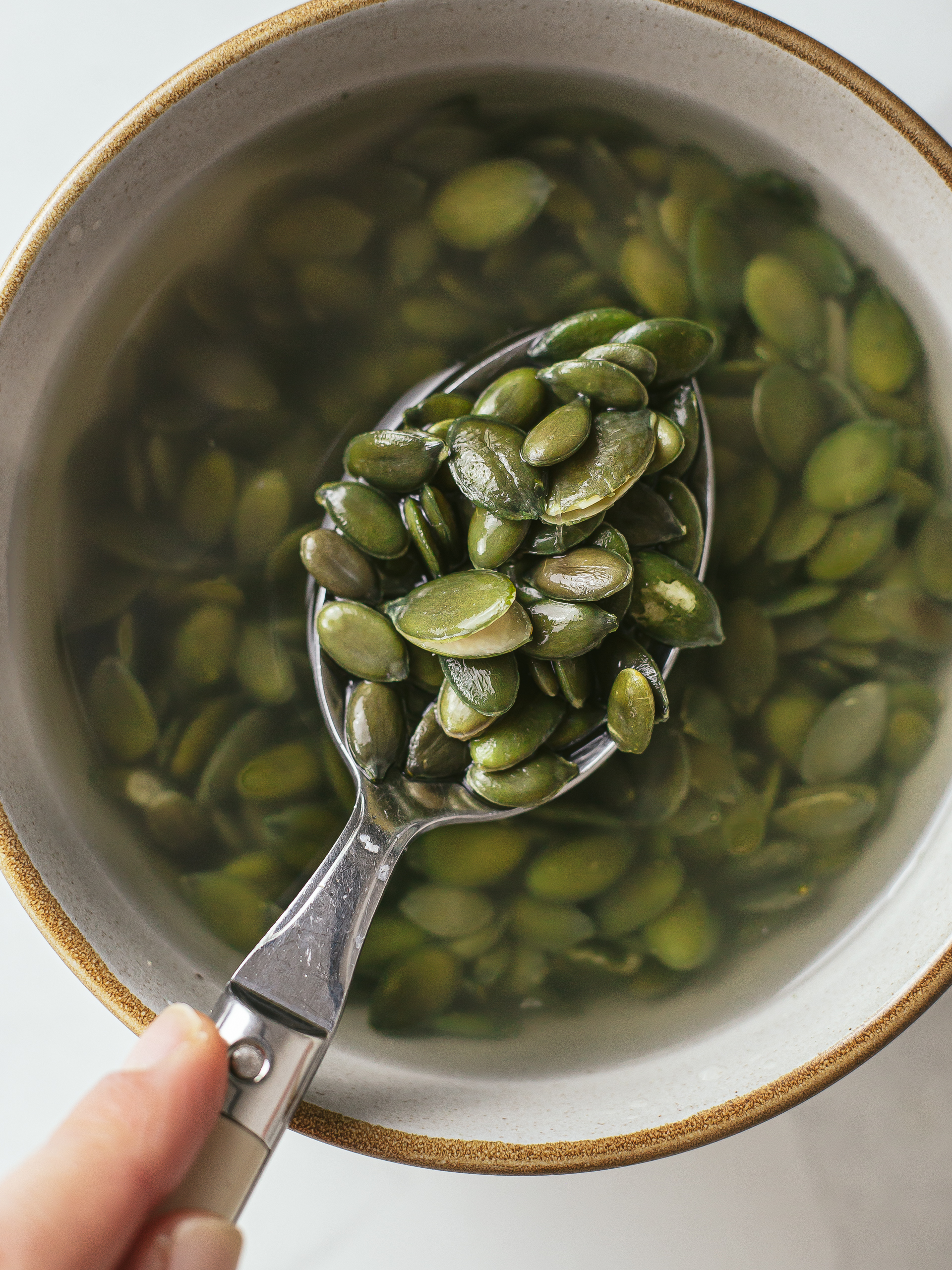
Step 2
Transfer the seeds to a powerful blender or food processor.
Tip in the salt, dates, and optionally the cinnamon.
Pour in 1/4 of the filtered water and blitz for 2-3 minutes, scraping the sides of the blender bowl a few times until you have pulp that's as smooth and creamy as possible.
Then, pour in the remaining filtered water and blitz for 1 more minute.
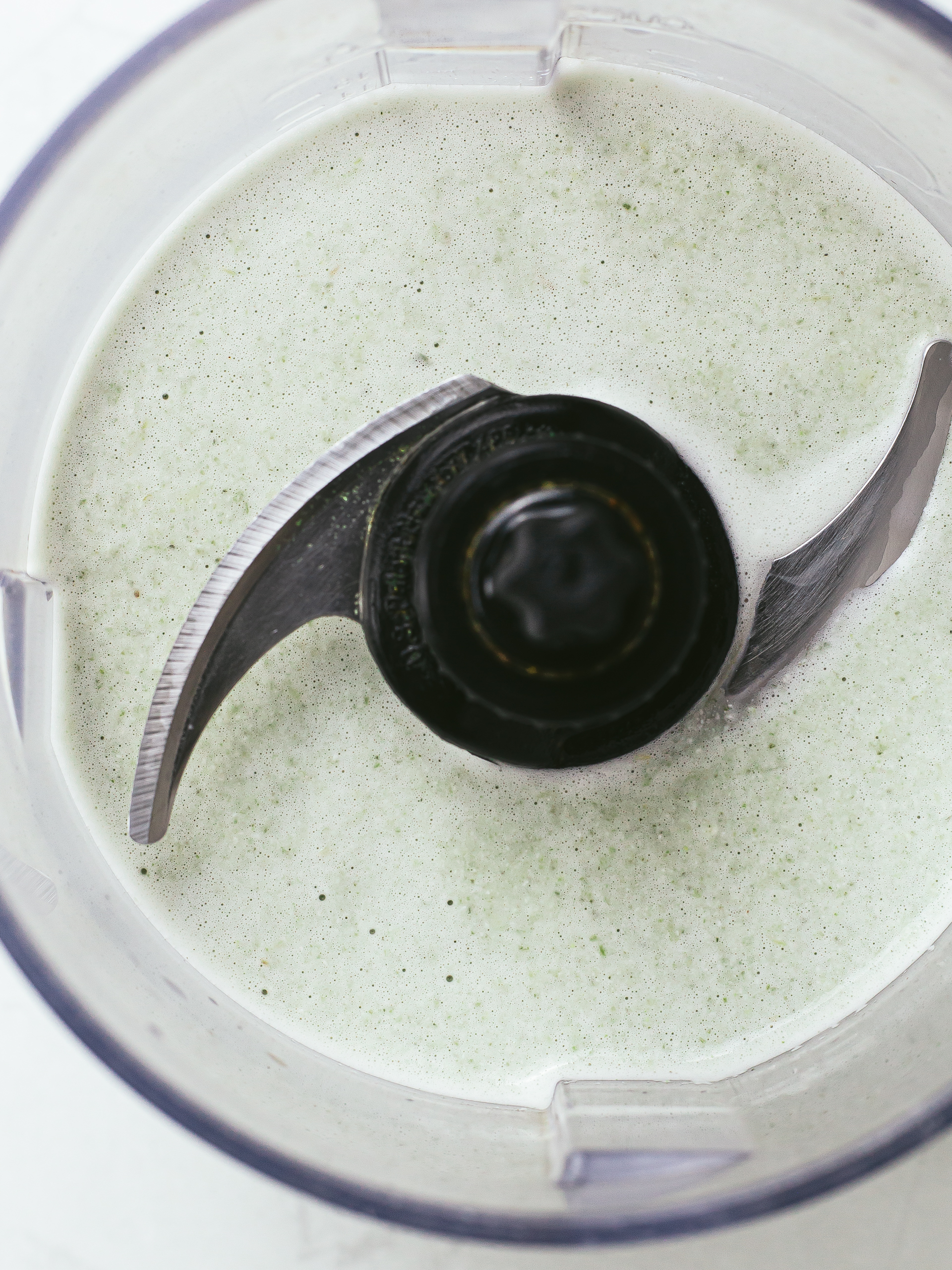
Step 3
Before straining it, leave the pumpkin seed milk to sit for 5-10 minutes to allow the flavours to infuse.
To filter, line a jug or bowl with a nut milk bag or a thin, clean dish towel and pour the seed milk.
Close the bag (or fold the towel) and squeeze it hard to collect as much seed milk as possible into the pitcher.
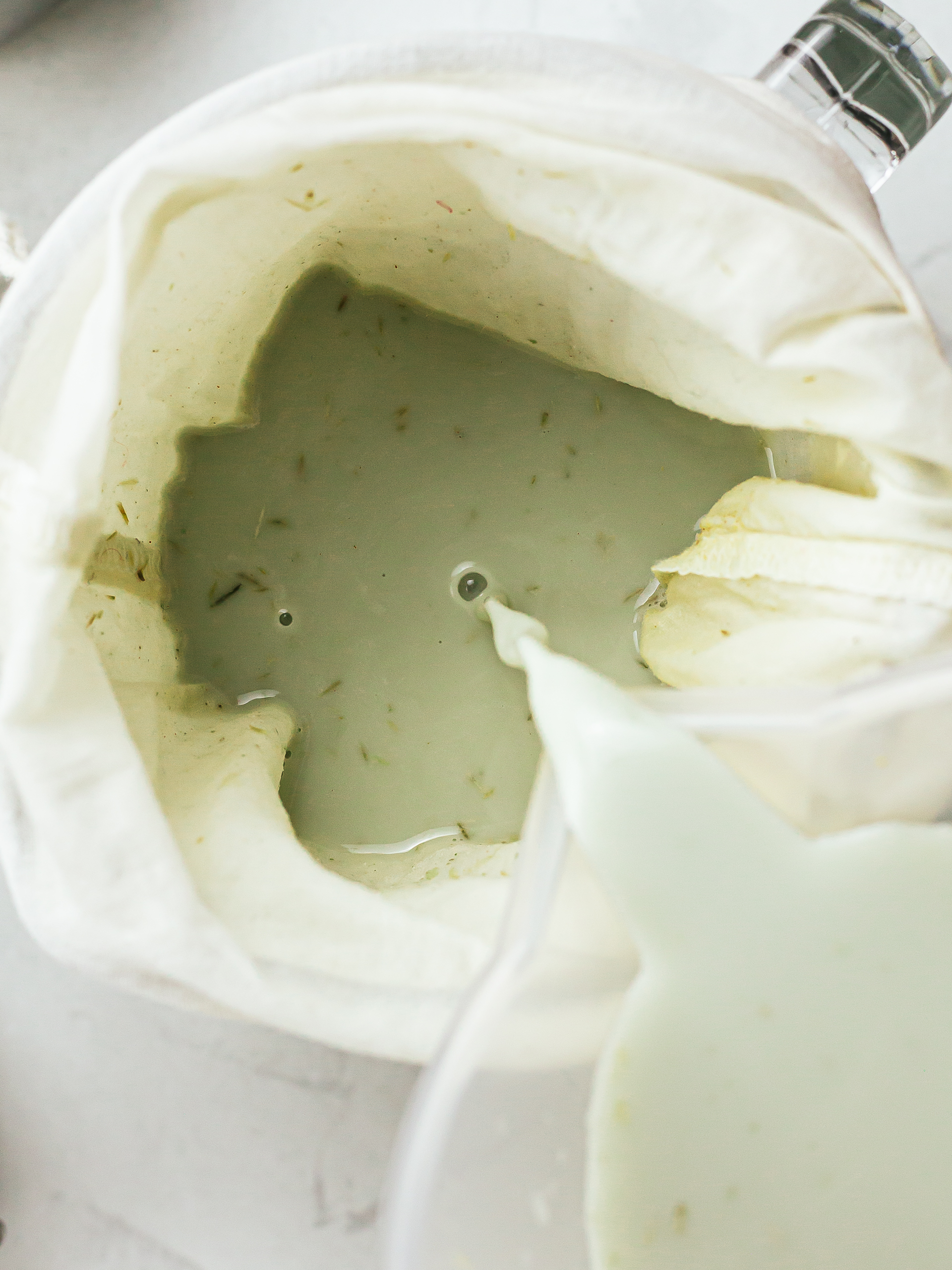
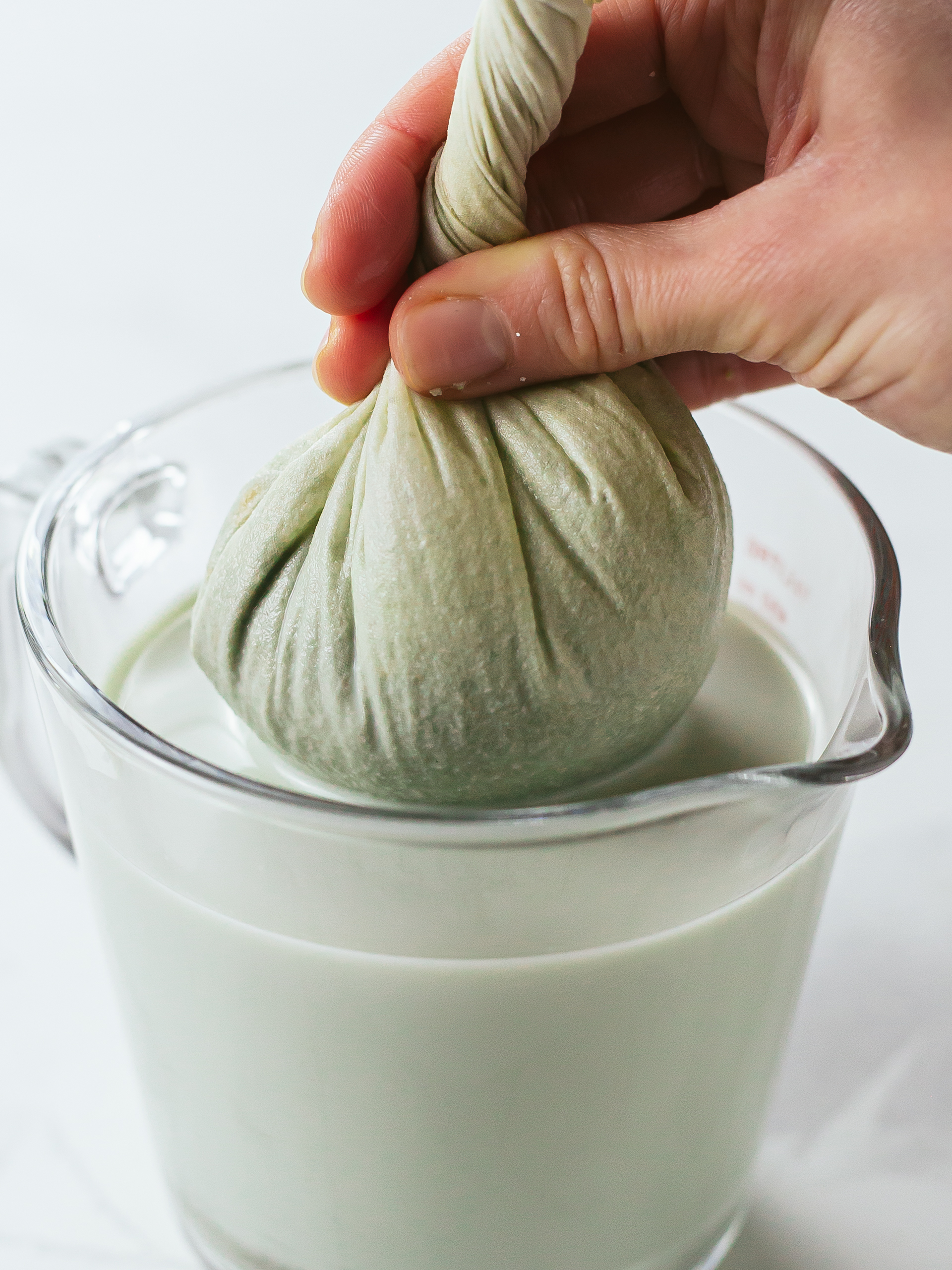
Step 4
Your healthy pumpkin seed milk is ready!
Transfer it to a clean, airtight bottle and refrigerate; it will stay fresh for 3-5 days.
This homemade seed milk has no added emulsifiers, so it tends to separate; give it a good shake or stir before using.
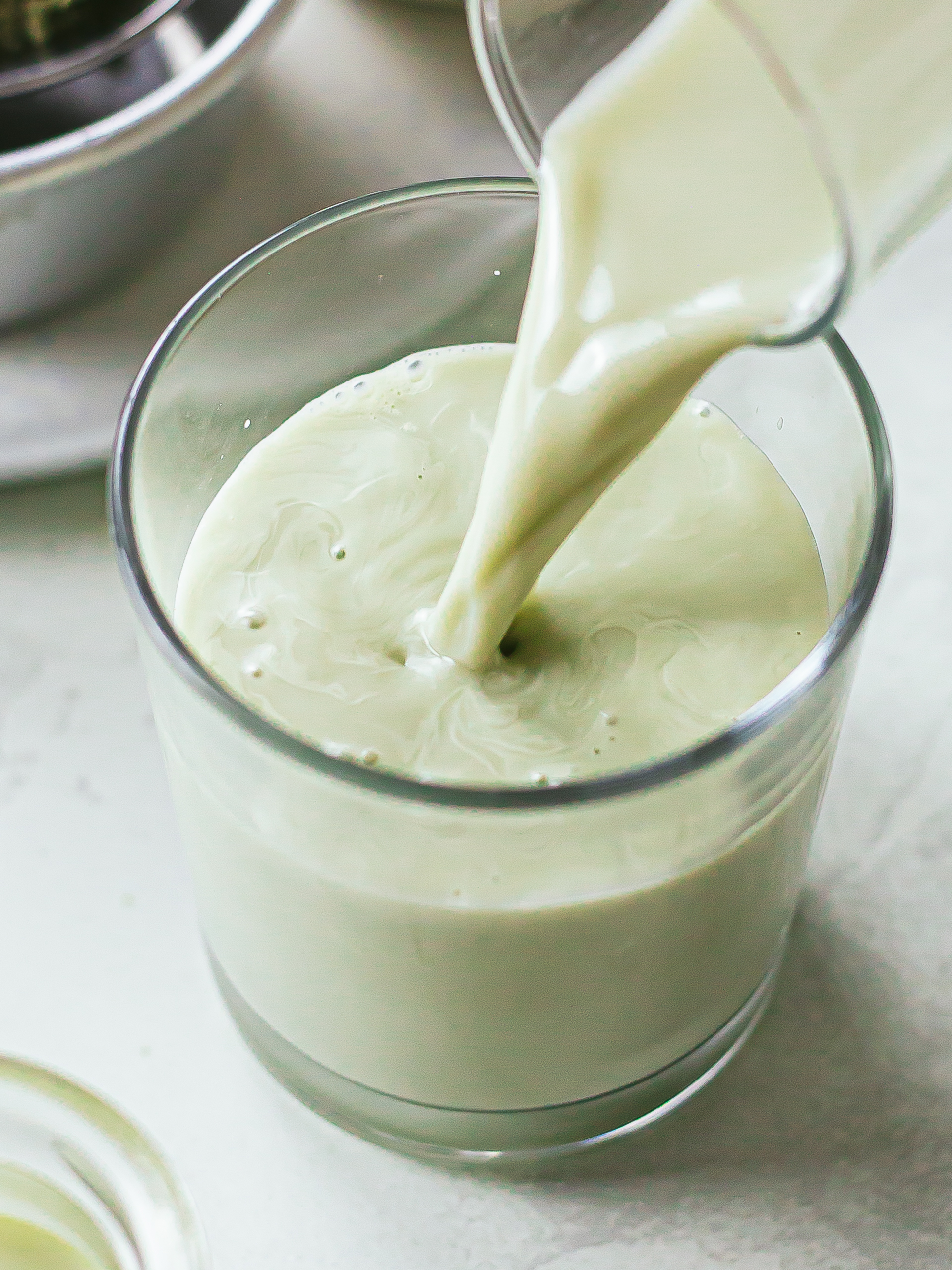
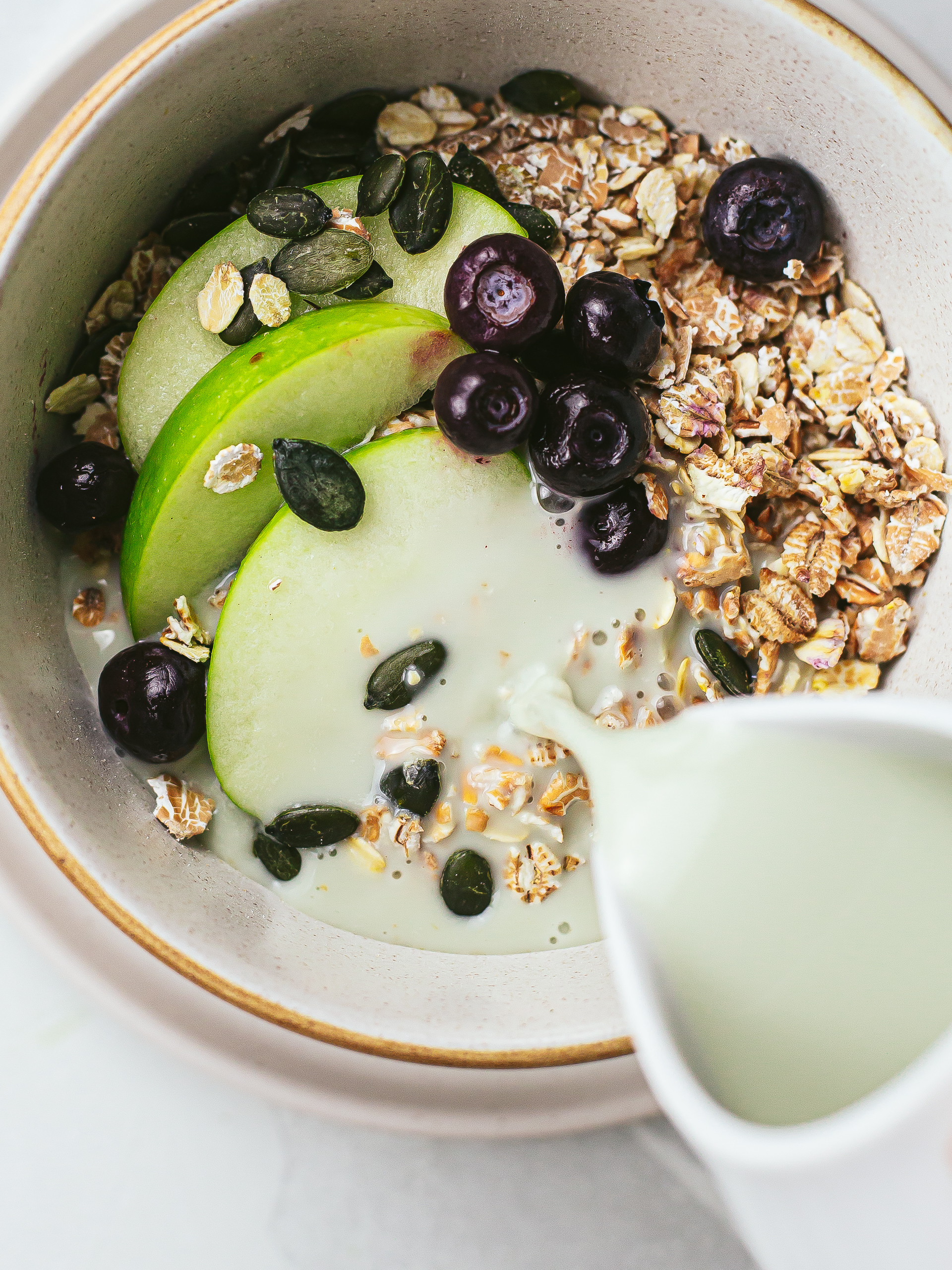
Tips
Unfiltered pumpkin milk
If you don't mind the grainy bits in your pumpkin seed milk, you can skip the straining step and drink the milk unfiltered.
The nutritional data is for the unstrained milk; if you filter it, you'll have to scale it down by two-thirds, as most of the pulp is removed.
How to store for longer
To store the pumpkin seed milk for up to a week, transfer it into jars or bottles that have been properly sterilised (boiled in water for 3 minutes and left to dry out completely in a low oven).
Like this recipe?
Try our delicious homemade quinoa milk — ready in 5 minutes!
